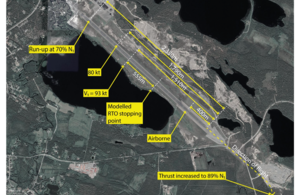New online claims form launched to benefit redundancy claimants
The Insolvency Service is the first beta partner to work with the Government Digital Service (GDS) on their new digital form building platform – GOV.UK Forms.
GOV.UK Forms will allow government departments and arm’s length bodies to easily create accessible online forms themselves, which will enable customers to share information in a timely and accessible manner.
The new online forms built using GOV.UK Forms will have a consistent look across all departments, and by meeting government accessibility standards, will allow all users to quickly and easily provide their information.
GDS are running a private beta testing phase after which they hope to make GOV.UK Forms available to all government organisations. The first partnership has seen GDS and the Insolvency Service collaborate to develop the Amend a redundancy claim: holiday pay accrued form.
The holiday claim accrued amendment form will allow people, who have previously made a claim for redundancy pay, to easily provide updated information regarding their applications using an online form.
Customers will no longer have to download and submit a word document or call the Insolvency Service’s helpline, making processing claims a quicker and simpler process.
The holiday claim accrued amendment form is one of six amendment forms used by the Insolvency Service’s Redundancy Payment Service, and the Insolvency Service and GDS are looking to create digital versions of the others forms in the future.
John Wheatle, Director of Business Services Division for the Insolvency Service, said:
The new online holiday claim accrued amendment form is an exciting development for the Insolvency Service and will help boost our levels of customer service. Customers, who are already in difficult personal circumstances, will be able to easily amend their redundancy claims and notifications will be sent straight to the relevant people, reducing errors and speeding up the process.
We are very proud to have worked with GDS on this innovative project and hope that the new form provides a good launch pad for us to transition other forms online, as well as other areas of government to develop their own forms in due course and provide excellent customer service.
Clara Barnett, Deputy Director of Digital Service Platforms for the Government Digital Service, said:
This has been a great collaboration with the Insolvency Service and has demonstrated the value and huge potential of GOV.UK Forms.
By helping teams across government create simple and accessible online forms, we’re making it easier for end-users to access government services. We’re also improving the quality of data which the government collects, through simple validation and better form design, as well as speeding up processing times.

